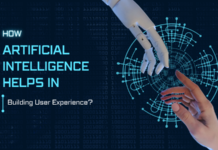Today, healthcare provision is patient-centered, thanks to the rapid evolution that has been seen in the 21st century. Technological advancements have been at the center of this rapid change in healthcare. The emergence of COVID19 served to hasten further the speed at which this transformation has been realized to date. This article will discuss five ways that the healthcare field is changing.
1. Technology-Assisted Diagnosis and Treatment
Artificial intelligence (AI) incorporation in the healthcare system has greatly improved healthcare provision. Doctors’ expertise has been amplified with additional layers of real-time data and insights, making it possible to minimize errors and increase precision. With AI, the patient’s past and present medical history and other relevant data are analyzed and stored. Based on these data, the machine can also make suggestions that would help diagnose, helping doctors determine possible diagnoses of their patients swiftly, thus implementing quick treatment action plans.
Today, robot-assisted surgeries have enabled surgeons to have a clearer view of what they are operating on, which has led to a significant reduction in deaths due to human error in the operating rooms. These robot-assisted surgeries have enabled surgeons to perform noninvasive surgeries that are less complicated, heal faster and leave the patients with minimal surgery-related scars.
In maintaining health, technological innovations such as smartwatches and home rapid test kits have enabled people to monitor vitals such as heart rates, amount of sleep, physical activity, blood glucose level, and blood pressure without visiting a health center.
2. More Enlightened Patients
With the advancements of technology, increased access to health-related apps, and numerous search engines, the patient today is more enlightened. After performing online searches based on their symptoms and history, patients will visit the doctors while slightly aware of what ails them and the possible medications to treat them. However, patients should take caution since the information that has been gathered online does not always yield accurate results and thus should not override professional medical advice.
3. Digital Appointments
Through the utilization of video calls, teleconferencing, chats, and other patient engagement solutions, patients can easily make digital appointments with their medical providers, which have played a major part in reducing the long queues at the medical centers. Because of this, drug-related complications and other pressing matters from the patients are addressed in a timely fashion. Due to COVID19 and subsequent legislation by governing bodies across the globe, the number of patients who opt not to visit hospitals, health centers, and physicians physically has risen.
4. Electronic Health Records
Paper filing systems made collaboration between clinicians practicing in different facilities difficult and time-consuming. Today, the collaboration between clinicians by using electronic health care records has made the process more effective, and many aspects of health care have been streamlined. Electronic health records collaboratively shared on time have enabled clinicians to provide timely decisions about their patient’s treatment plans. Digital sharing of electronic health records and other health-related data has also enabled healthcare professionals to reduce complications from chronic ailments and mortality rates that were initially witnessed due to delayed diagnosis.
5. Personalized Care
Recent surveys revealed that patients demand personalized health care from their medical providers. Technology has helped in improving this by the increase in patient engagement through the use of wearable technology and digital appointments. With the aid of these wearable devices, the personalization of health care can be precise since individuals’ medical data is analyzed and accurately recorded. The doctor then uses these records to inform the patient coaching plans and health recommendations that address the patient’s needs and goals.
The patients’ ability to reach their care provider via digital appointment 24/7 has also played a big role in personalized care provision in this era.
Global cooperation among healthcare professionals and medical researchers has improved due to the availability of repositories in the cloud where related research data are shared. The world witnessed this in 2020 when COVID19 related data was shared globally. Because of this, this virus’s structure and gene sequence were quickly shared, which contributed to the speedy development of vaccines. Technological advancements will continue to revolutionize health care in the near future. However, ethical concerns that emerge with these advancements must also be addressed for a harmonious society.
















